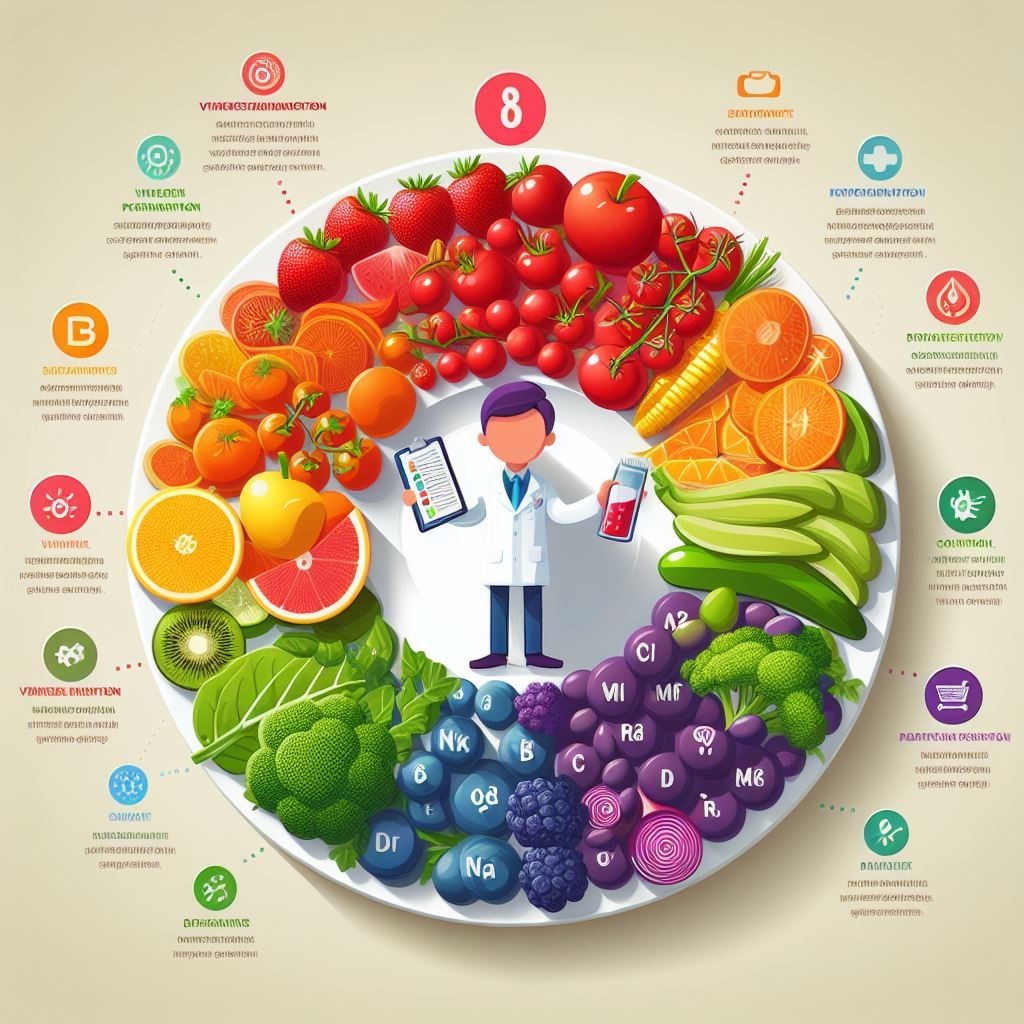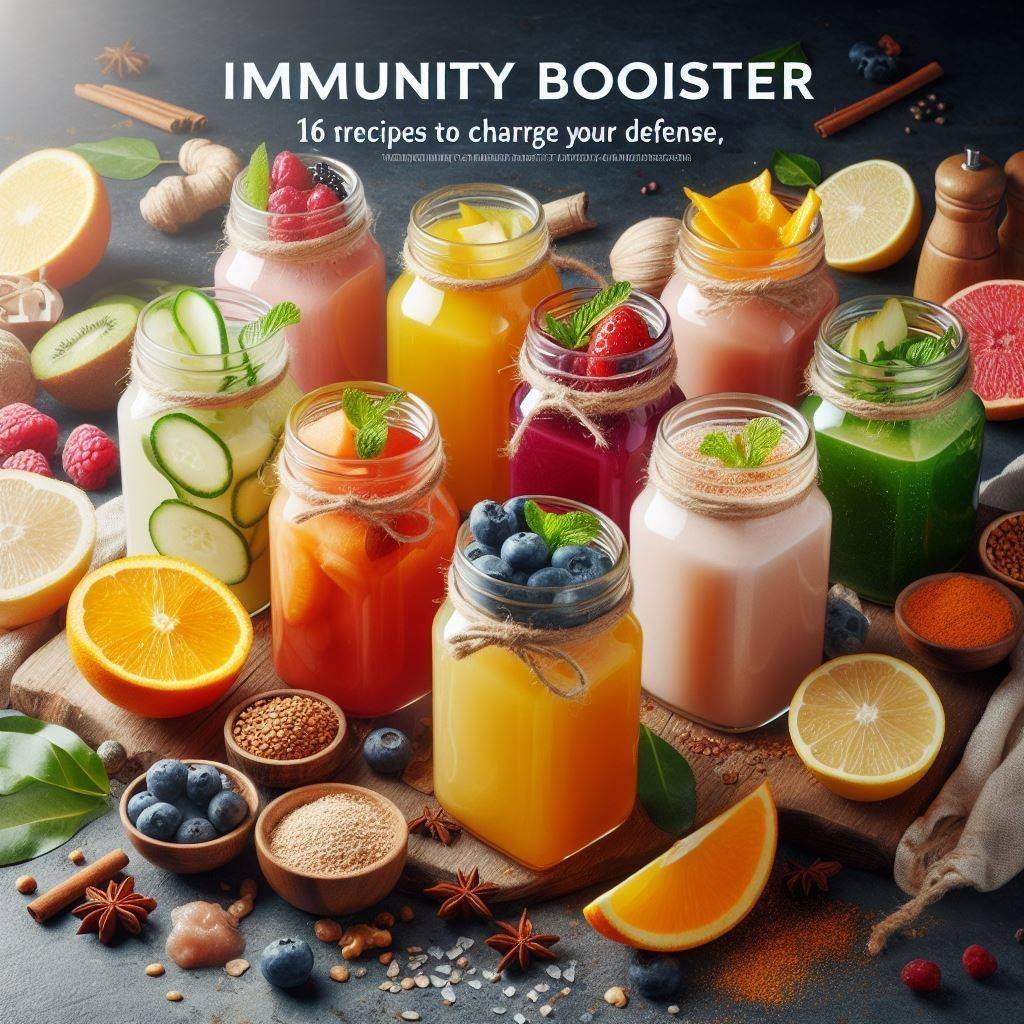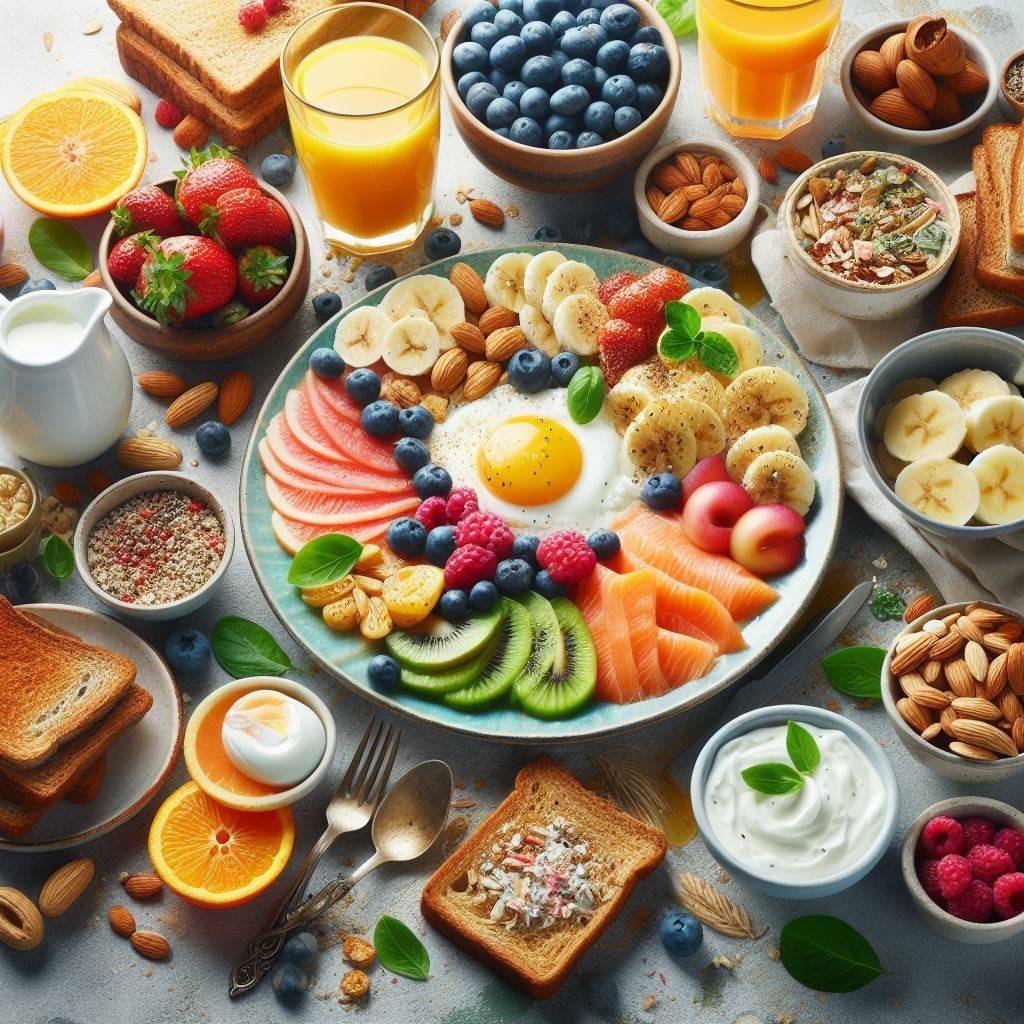Getting all the vitamins you need daily is essential for overall health, well-being, and disease prevention. Eating a balanced diet full of fruits, vegetables, lean proteins, whole grains, and healthy fats can help you meet your daily vitamin needs. However, many people still fall short on certain vitamins and may benefit from taking a high-quality multivitamin supplement. Here is a comprehensive guide on how to get all the vitamins you need daily through diet and supplementation.
Key Takeaways for how to get all the vitamins you need daily.
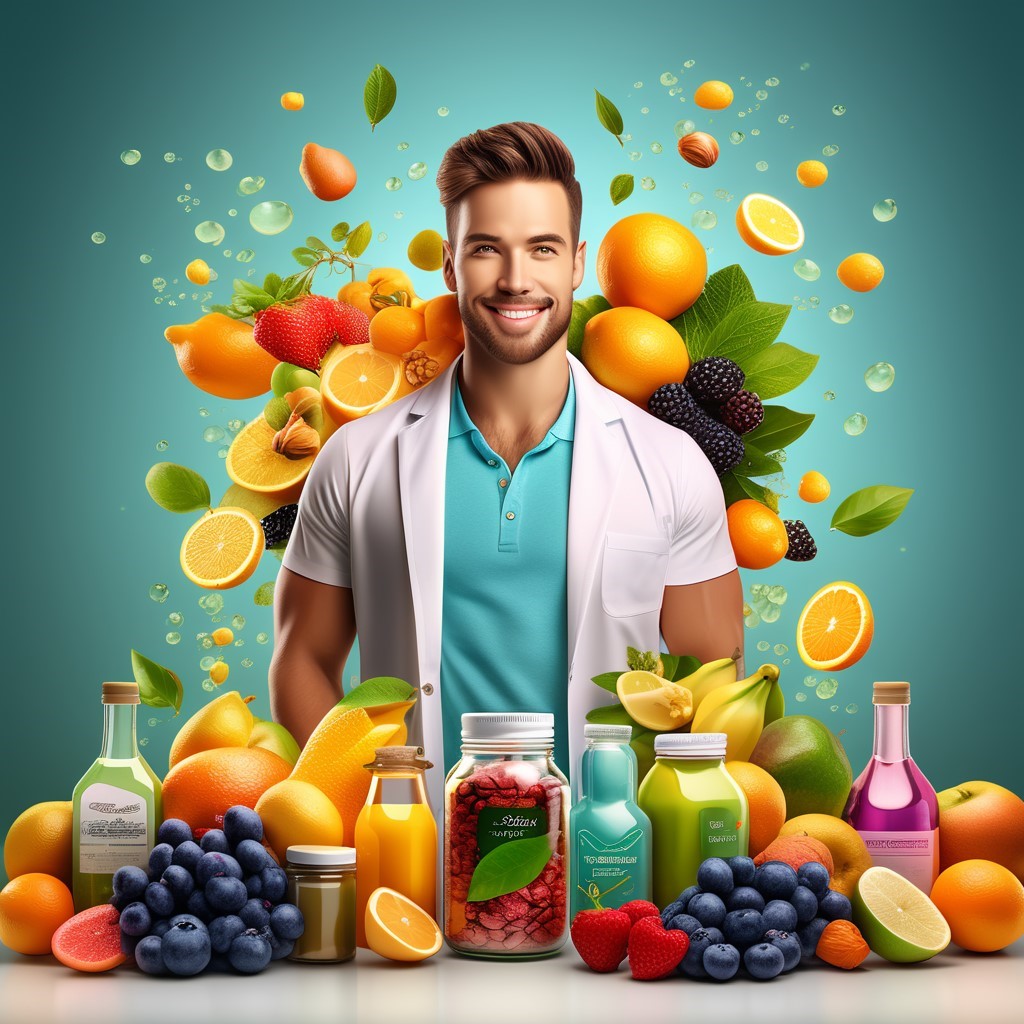
Key Takeaways for how to get all the vitamins you need daily
- Eat a variety of colourful fruits and vegetables to get important vitamins like A, C, E, K, and folate.
- Include whole grains, nuts, seeds, and legumes for B vitamins.
- Eat fatty fish, eggs, and fortified foods, or take fish oil for vitamin D.
- Take a high-quality multivitamin to fill any nutritional gaps.
- Talk to your doctor about any specific vitamin deficiencies.
- Get 20-30 minutes of sunlight per day for vitamin D.
- Cook tomatoes and spinach to increase the bioavailability of vitamins A and C.
- Choose fortified breakfast cereals and plant-based milk.
- Limit processed foods low in vitamins.
Understanding Key Vitamins and How to Get All the Vitamins You Need Daily
Getting all the vitamins you need each day helps to understand the main vitamins, their functions, and their food sources. Here is an overview of some of the most important vitamins and how to get them in your diet:
Vitamin A
- Function: Cell growth, immune function, vision, reproduction.
- Sources: Sweet potatoes, carrots, dark leafy greens, eggs, liver.
Vitamin C
- Function: Immune health, antioxidant, iron absorption, collagen formation.
- Sources: Oranges, grapefruit, kiwi, strawberries, peppers, broccoli.
Vitamin D
- Function: Bone health, immune function, mood regulation, cell growth.
- Sources: Sunlight, fatty fish, eggs, fortified foods, supplements.
Vitamin E
- Function: Antioxidant, cell signalling, immune function.
- Sources: Nuts, seeds, spinach, broccoli, avocado.
Vitamin K
- Function: blood clotting, bone health.
- Sources: Leafy greens, broccoli, liver, fermented foods.
B Vitamins
- Function: energy production, cell metabolism, nervous system.
- Sources: Meat, eggs, legumes, nuts, seeds, whole grains.
Folate
- Function: DNA synthesis, cell division, red blood cell formation.
- Sources: Leafy greens, asparagus, broccoli, citrus fruits, liver.
Eating a Balanced Diet with Vitamin-Rich Foods and How to Get All the Vitamins You Need Daily
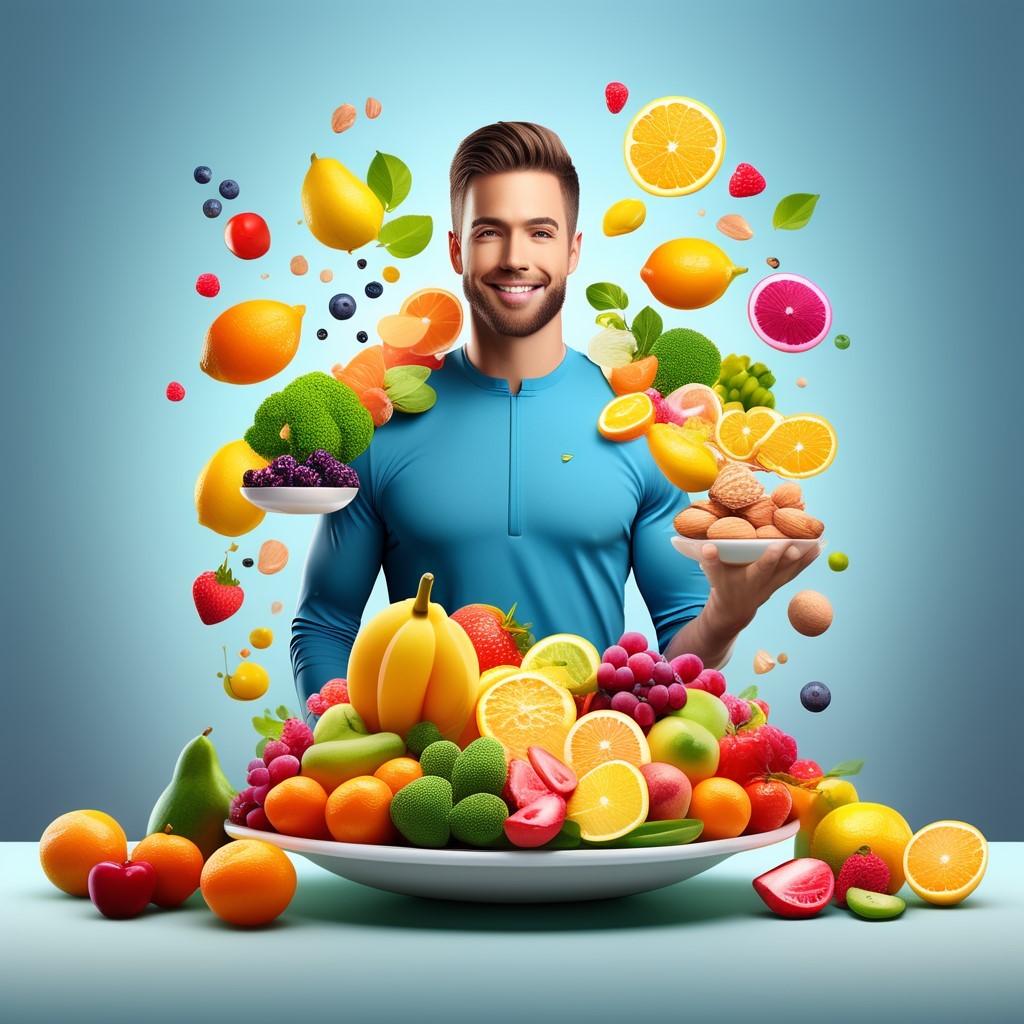
One of the best ways to meet your vitamin needs is to eat a varied, balanced diet focused on whole, minimally processed foods. Eat fruits and vegetables of all colours to get a diverse range of vitamins. Here are some tips:
- Fruits and veggies: Eat 2-3 servings of fruit and 3-5 servings of vegetables daily. Include sources like oranges, berries, leafy greens, peppers, broccoli, squash, and tomatoes.
- Lean protein: Choose fish, poultry, eggs, legumes, nuts, and seeds for protein, along with B vitamins.
- Whole grains: Opt for whole grains like brown rice, quinoa, oats, and whole wheat for fiber, B vitamins, iron, and magnesium.
- Healthy fats: Use olive oil, avocados, nuts, and fish to help absorb fat-soluble vitamins A, D, E, and K.
- Fortified foods: Look for cereals, milk alternatives, and juices fortified with vitamins B, D, and iron.
- Herbs and spices: Add turmeric, red chilli, garlic, ginger, and others to boost vitamin content.
Supplementing with a Multivitamin to Get All the Vitamins You Need Daily
While a healthy diet should provide most of your vitamins, many people can benefit from taking a daily multivitamin as insurance to fill any gaps. Multivitamins may be especially helpful for those who:
- Don’t eat a balanced diet regularly.
- Are elderly or have certain medical conditions?
- Are pregnant or breastfeeding?
- Follow a vegetarian, vegan, or restricted diet.
- Have food allergies or intolerances
- Struggle with low iron levels or fatigue
- Take certain medications that deplete nutrients.
When choosing a multivitamin to help get all the vitamins you need daily, look for one that provides 100% of the Recommended Daily Allowance for most vitamins and minerals. Avoid mega-doses of certain vitamins like A, D, E, and iron, which can cause toxicity. Talk to your doctor to see if taking multivitamins may be right for you.
Important Lifestyle Tips for how to get all the vitamins you need daily.
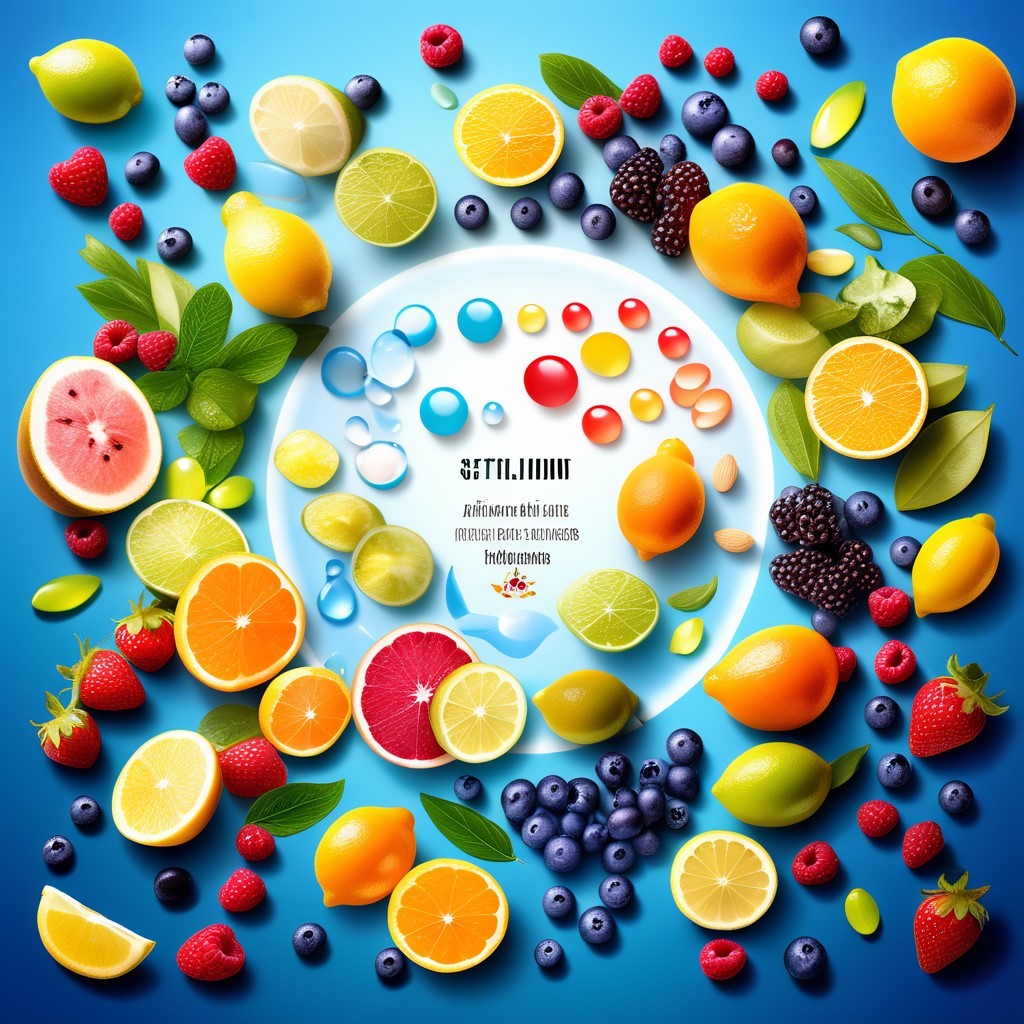
Along with your diet and supplementation, some key lifestyle tips can optimize your vitamin levels:
- Sun exposure: Get 15-30 minutes of midday sunlight to encourage vitamin D production in the skin. Expose extensive areas of skin twice per week.
- Cook tomatoes: Cooking tomatoes increases the bioavailability of lycopene, a powerful antioxidant. Likewise, steaming spinach enhances lutein absorption.
- Manage stress: Chronic stress increases vitamin C requirements,, so eat enough fruits and veggies.
- Don’t smoke: Smoking depletes vitamins C and E, carotenoids, and B vitamins. Avoid tobacco.
- Moderate alcohol: Heavy alcohol consumption can reduce absorption of vitamins B1, B6, C, and folate.
- Exercise: Being active helps normalize homocysteine levels, a risk factor for B vitamin deficiency.
Signs That You May Have a Vitamin Deficiency Affecting Your Ability to Get All the Vitamins You Need Daily
Some symptoms that may indicate a vitamin deficiency include:
- Fatigue, weakness
- Frequent infections or illness
- Bruising easily
- Dry, damaged skin and hair
- Slow wound healing
- Anemia
- Changes in vision
- Poor concentration and memory
- Numbness or tingling in hands and feet.
- Depression, irritability, anxiety
If you persistently experience any of these symptoms, see your doctor and ask to have your vitamin levels tested. Treating any deficiencies properly can greatly improve these issues and allow you to get all the vitamins you need daily.
Sample 1-Day Meal Plan: How to get all the vitamins you need daily.
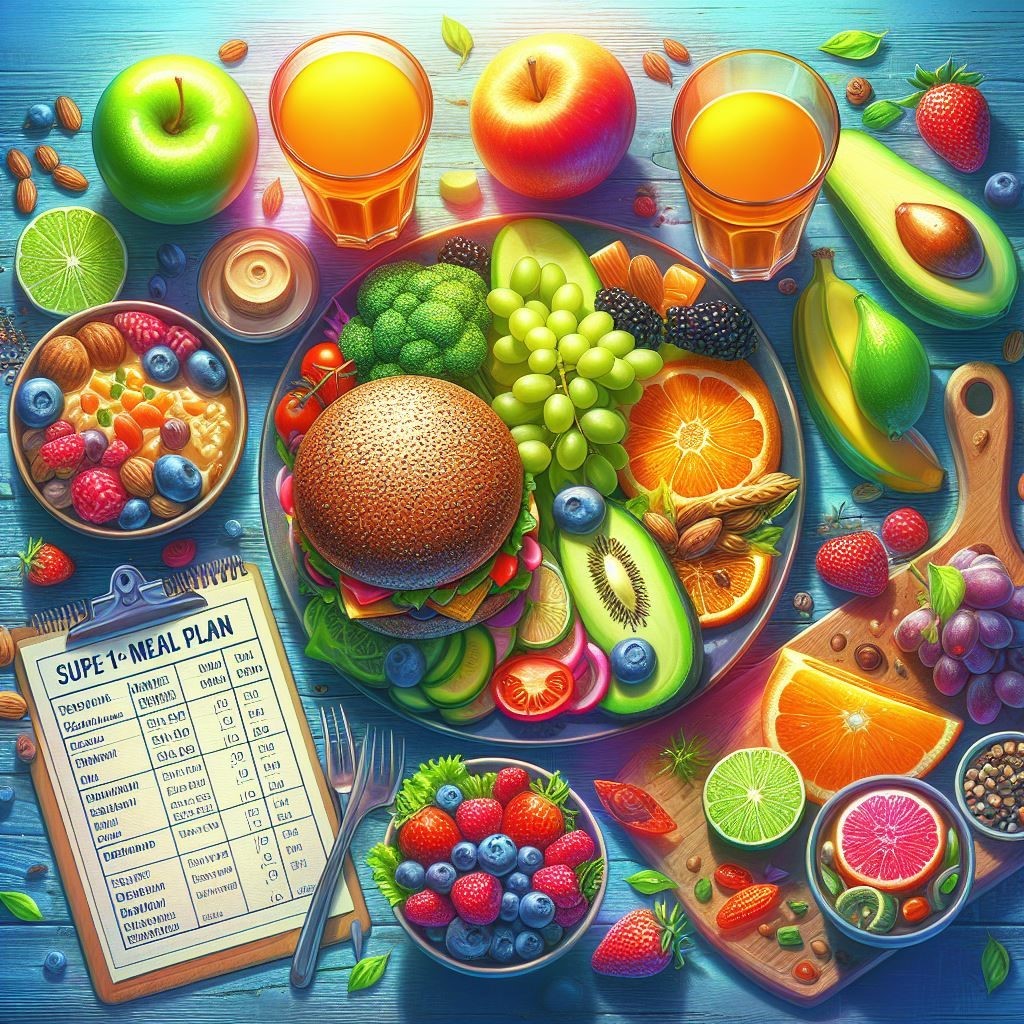
Here is a sample one-day meal plan that incorporates a variety of vitamin-rich foods to help you get all the vitamins you need daily:
Breakfast
- 1 cup Greek yogurt with 1/2 cup mixed berries
- 1 slice whole-grain toast with 2 tbsp peanut butter
- 1 cup green tea
Lunch
- Tuna salad sandwich on whole wheat bread with lettuce, tomato
- 1 orange
- Baby carrots and hummus
Dinner
- 3 oz salmon baked with lemon and herbs.
- 1 cup quinoa
- 1 cup roasted Brussels sprouts.
- Small garden salad with vinaigrette
Snacks
- 1 oz mixed nuts
- 1 apple with 1 tbsp almond butter
- Vitamin water, zero sugar
This provides a balanced meal plan with fruits, vegetables, lean proteins, healthy fats, and whole grains to meet daily vitamin needs. Adjust serving sizes as needed for your calorie needs.
Summary of How to Get All the Vitamins You Need Daily
Getting all the essential vitamins your body needs daily is vital for maintaining energy levels, health, and well-being. How to Get All the Vitamins You Need Daily: Eat more fruits, vegetables, whole grains, lean proteins, and healthy fats. Consider taking a daily multivitamin to fill any nutritional gaps. Get 20-30 minutes of sun exposure for vitamin D and cook foods like tomatoes to increase nutrient absorption. Read nutrition labels and aim to meet 100% of the vitamin RDA each day. How to Get All the Vitamins You Need Daily: Focusing on properly meeting your vitamin needs can help boost immunity, vitality, and overall body function.
FAQS about How to Get All the Vitamins You Need Daily
Here are the common frequently asked questions about how to Get All the Vitamins You Need Daily and the best answers for them.
How can I get 100% of my daily vitamins?
The easiest way is to eat a balanced diet with many fruits, vegetables, whole grains, proteins, and healthy fats. Aim for 5 servings of fruits/veggies, eat fortified foods like cereal or plant milk, and take a daily multivitamin as insurance to fill any gaps. Your body absorbs vitamins best from food, so focus on variety and nutrition in your meals.
How can I get all my vitamins in one day?
It’s doable to get all your vitamins in one day by being mindful to include vitamin-rich foods at every meal and snack. For example, have oatmeal with fruit for breakfast, a salad with veggies and tuna for lunch, salmon with spinach for dinner, and nuts or yogurt for snacks. Taking a multivitamin gives you a little extra as well. The key is eating a balanced diet all day long.
How do you get your source of vitamins daily?
I ensure to eat fruits, veggies, and whole grains at every meal. Things like citrus, leafy greens, berries, peppers, broccoli, and squash are significant sources. Nuts, seeds, eggs, and fatty fish also provide key vitamins. I take a multivitamin to cover all my bases. Drinking fortified juices or milk provides vitamins, too. Just be consistent in getting a variety of vitamin-rich foods daily.
What food has all 13 vitamins?
No single food contains all 13 vitamins. But eating a combination of foods can provide them all over a day. For example, eggs, whole grains like oatmeal, fruit like bananas, veggies like spinach, nuts, seeds and fatty fish like salmon are excellent sources of many vitamins. Eat a balanced diet along with a daily multivitamin to cover them all.
Reference
How to ensure you get the right vitamins and minerals in the right amounts.

